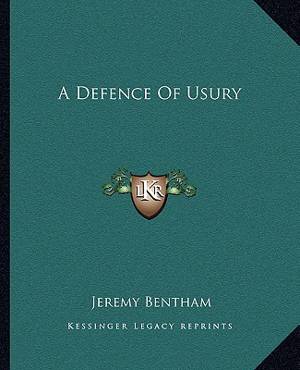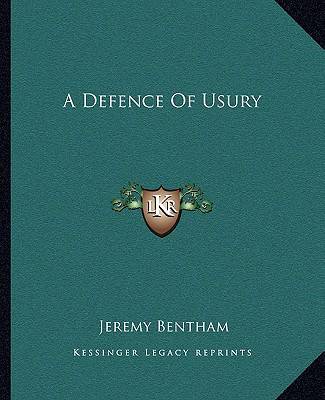
- Retrait gratuit dans votre magasin Club
- 7.000.000 titres dans notre catalogue
- Payer en toute sécurité
- Toujours un magasin près de chez vous
- Retrait gratuit dans votre magasin Club
- 7.000.000 titres dans notre catalogue
- Payer en toute sécurité
- Toujours un magasin près de chez vous
Description
""A Defence of Usury"" is a book written by Jeremy Bentham in 1787, in which he argues that the prohibition of usury (the charging of interest on loans) is an unjust restriction on individual liberty and economic growth. Bentham believes that the free market should determine the interest rate and that the lender should be able to charge whatever interest rate they choose. He also argues that the prohibition of usury leads to a black market for loans, which is more dangerous and less regulated than the legal market. Bentham's book is a critique of the prevailing economic theory of his time and a defense of the principles of free trade and individual liberty. It remains a significant work in the history of economic thought and a valuable contribution to the ongoing debate about the role of government in regulating the economy.The first, I shall mention, is that of precluding so many people, altogether, from the getting the money they stand in need of, to answer their respective exigencies. Think what a distress it would produce, were the liberty of borrowing denied to every body: denied to those who have such security to offer, as renders the rate of interest, they have to offer, a sufficient inducement, for a man who has money, to trust them with it.This scarce antiquarian book is a facsimile reprint of the old original and may contain some imperfections such as library marks and notations. Because we believe this work is culturally important, we have made it available as part of our commitment for protecting, preserving, and promoting the world's literature in affordable, high quality, modern editions, that are true to their original work.
Spécifications
Parties prenantes
- Auteur(s) :
- Editeur:
Contenu
- Nombre de pages :
- 78
- Langue:
- Anglais
Caractéristiques
- EAN:
- 9781162659534
- Date de parution :
- 10-09-10
- Format:
- Livre broché
- Format numérique:
- Trade paperback (VS)
- Dimensions :
- 190 mm x 235 mm
- Poids :
- 149 g







